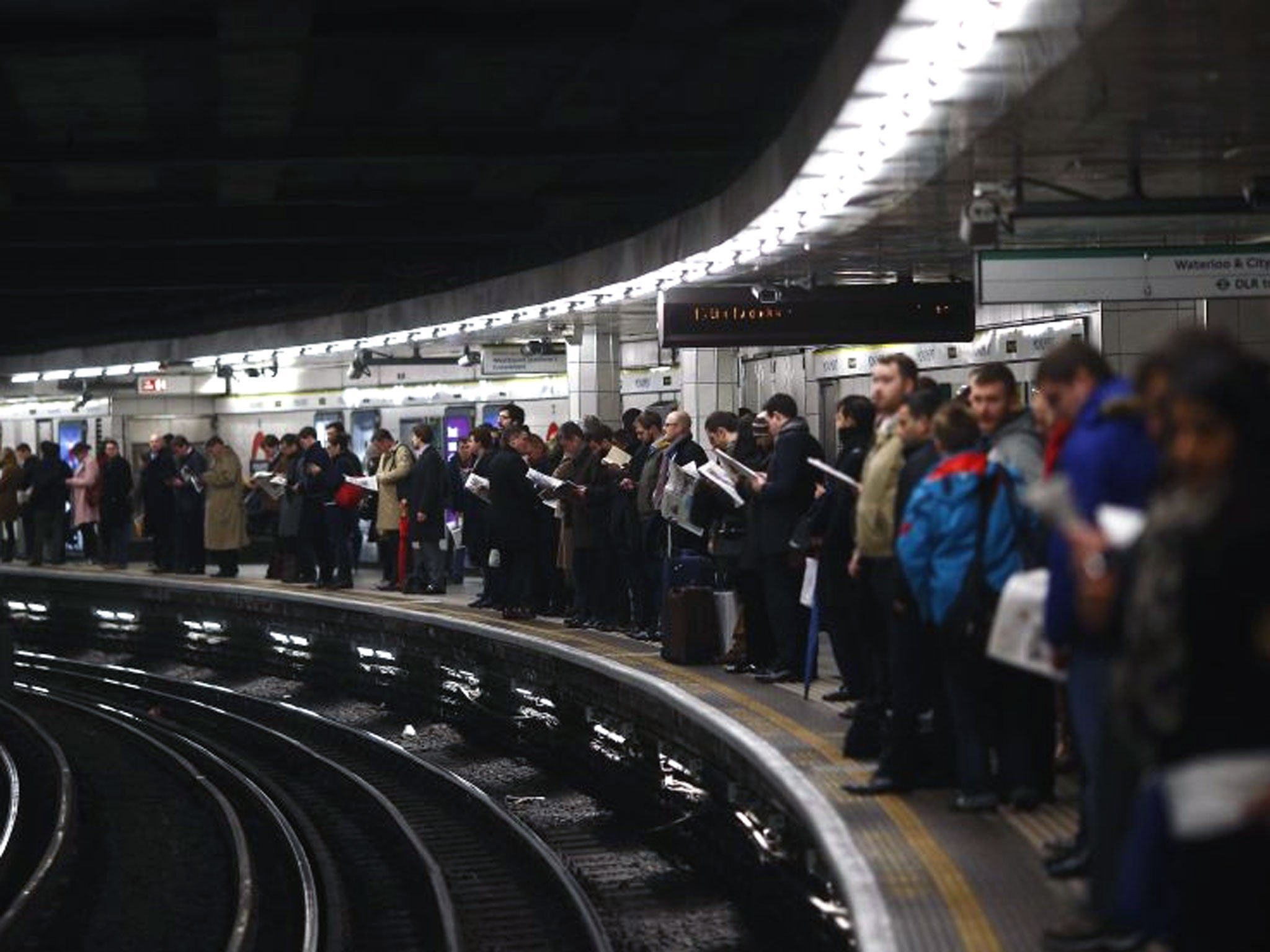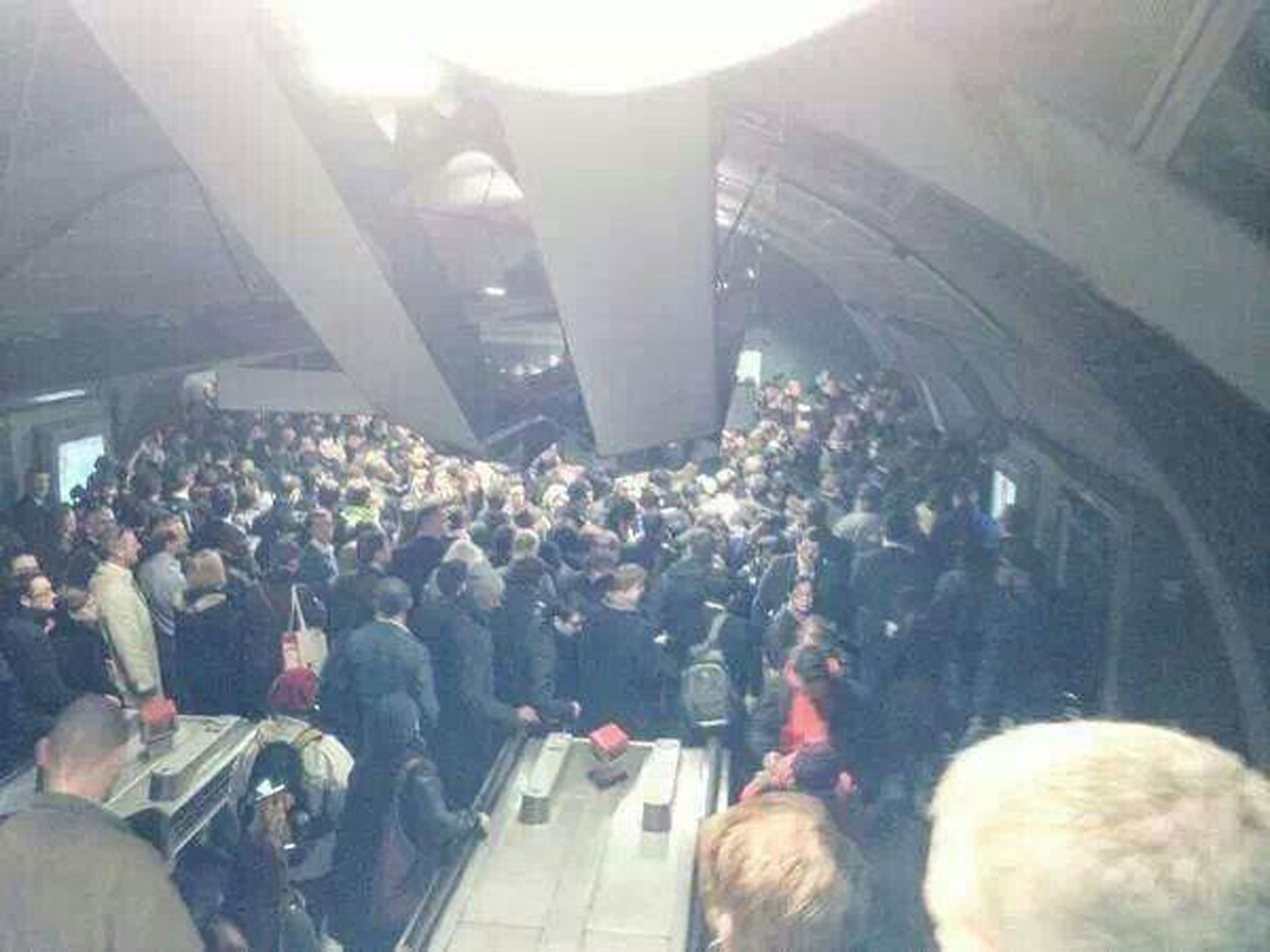Tube strike called off: Tranport unions suspend action after London Underground agree full review of ticket office closures decision

Your support helps us to tell the story
From reproductive rights to climate change to Big Tech, The Independent is on the ground when the story is developing. Whether it's investigating the financials of Elon Musk's pro-Trump PAC or producing our latest documentary, 'The A Word', which shines a light on the American women fighting for reproductive rights, we know how important it is to parse out the facts from the messaging.
At such a critical moment in US history, we need reporters on the ground. Your donation allows us to keep sending journalists to speak to both sides of the story.
The Independent is trusted by Americans across the entire political spectrum. And unlike many other quality news outlets, we choose not to lock Americans out of our reporting and analysis with paywalls. We believe quality journalism should be available to everyone, paid for by those who can afford it.
Your support makes all the difference.A planned 48-hour London Tube strike, which would have caused disruption to millions of the capital's commuters, has been cancelled just hours before it was due to begin after the two unions involved won apparent concessions from London Underground.
The strike was due to begin at 9pm this evening after talks aimed at resolving the dispute over the proposed closure of ticket offices appeared to have failed.
However, in a dramatic development the RMT and TSSA unions agreed to suspend the industrial action.
The transport unions are opposed to controversial London Underground plans to close 260 ticket offices with the possible loss of 950 jobs.
Full details of the agreement are unclear, but it is believed the TSSA and the RMT accepted an offer that includes an extended consultation period over ticket office closures and a freeze on the processing of voluntary redundancy applications.
Crucially, according to Transport for London a formal review of ticket office closures will take place on a station by station basis, meaning that some could remain open.
The decision to review each of the station closures and the admission that some may remain open has been interpreted as a significant concession to the unions.
The details of the deal include:
- That the unions will suspend this week's strike action.
- Two months of intensive talks during which time there will be no further industrial action.
- A review, station by station, of LU's proposals which could result in some ticket offices remaining open.
RMT general secretary Bob Crow said unions had received proposals that halted implementation of job cuts, so that discussions can be held "away from the pressure cooker".
Mr Crow said: "After two days of intensive and detailed discussions through the offices of Acas we have now received proposals that halt the implementation of the job cuts which gives us the opportunity to discuss all of the issues away from the pressure cooker.
"We now have a golden opportunity to look again in detail at all of the concerns we have raised about the impact of the cuts on our members and the services that they provide to Londoners. That is exactly what we have been calling for throughout this dispute.

"RMT is happy to discuss any issues with LU through the machinery of negotiation and we are glad that we have now got back to where we should have been right at the start of this process.
"It is unfortunate that we were forced and provoked into a dispute that we never wanted and we are now in a position to move on with the clear understanding that our action is suspended but if there is any further attempt to impose change from above the action will go back on."
A TSSA spokesman said: "We have now agreed a process where all our serious concerns over safety and job losses will be seriously addressed through the normal channels.
"We are obviously pleased that we have agreed this process."
John Woods, deputy chief conciliator at Acas, said: "We welcome the news that the proposed industrial action has been withdrawn. We want to thank all the parties involved for their hard work and commitment over 10 days of intensive talks with Acas."
The Federation of Small Businesses estimated that last week's action cost small firms in the capital £600 million in lost working hours, business and productivity.
Londoners were bracing for further disruption following action last week that saw what the RMT described as 'lethal overcrowding' .
Earlier today Fulham football club warned that strike action could lead to the cancellation of their Premier League match.
LU managing director Mike Brown said: "We welcome the constructive talks at Acas today and await confirmation from the RMT and TSSA that their strike action is suspended.
"We have always said that we want the unions to engage fully with us, to help shape our proposals for the future of the Tube.
"The hard work of both the LU and union negotiating teams and the progress we have made at Acas over the last few days means we can now do that without further unnecessary disruption to Londoners."
LU repeated that it planned to have staff based in ticket halls, on gate lines and on platforms rather than in ticket offices, adding that changes would be implemented without compulsory redundancies.

The Mayor of London, Boris Johnson, said: "I'm pleased the TSSA and the RMT have agreed to call off their planned strike following talks with Transport for London. It means further unnecessary disruption to London and Londoners has been averted.
"TfL's negotiators have been ready since November to discuss the detail around ticket office closures and wider modernisation of the Tube. It's welcome news that the unions appear to recognise that, and will return to full and substantive discussions with TfL between now and the end of the consultation period in early April.
"Modernisation is essential if we are to properly serve the millions of Londoners who rely on the Tube every day, and who expect a bigger, better service that offers value for money whilst protecting future investment.
"It is essential that our hard-working and dedicated staff, who are vital to the delivery of that vision, understand the changes we are proposing.
"Sitting down to discuss those proposals, free from the prospect of strike action, was always the only sensible way forward. I'm grateful to TfL's negotiating team and pleased the unions agree this is the right way forward."
The Federation of Small Businesses (FSB) estimated that last week's action cost small firms in the capital £600 million in lost working hours, business and productivity.
Transport for London has said the proposals to close ticket offices will save £50million a year and that it has the backing of 82 per cent of Londoners.
But a survey of 1,000 tube users for the RMT suggested that almost two thirds of passengers believe strike action is justified.
Join our commenting forum
Join thought-provoking conversations, follow other Independent readers and see their replies
Comments